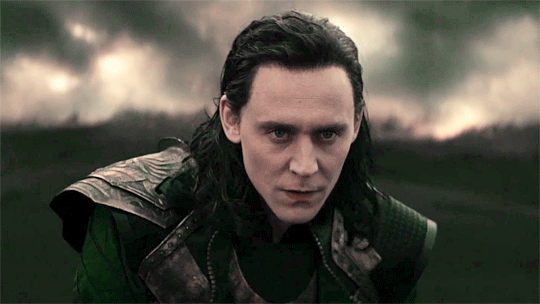

In the best moments within the two episodes provided for press, "Loki" wonders aloud about whether people can change, and if everything is truly pre-determined. At the moment, there’s not many other subplots-Wilson and Mbatha-Raw's strait-laced characters have a couple side conversations, but those aren’t very interesting-and it’s more about this idea of Loki confronting his past back-stabbings.

The cliffhanger in episode two is a great example of that, and also an instant sell for why I can’t wait to follow this show every week.ĭirector Kate Herron and writer Michael Waldron have fashioned a helluva giddy set-up for this series, with these first two episodes proclaiming an especially lean and speedy energy. Because of Hiddleston’s work, many of his decisions within the mission, to help or not not, become especially visceral or effective.
Loki im listening series#
He’s always been great with the bluster behind the part of Loki, even as the character was softened in later movies, and the series mines this superiority for a great challenge to his heavily damaged moral compass. Hiddleston is a shady rock star in this world, playing a self-proclaimed god whose powers are rendered impotent by his surroundings but with an ego always on fire at his core. This is all before the pursuit truly kicks off, but as an existential centerpiece of episode one, it’s captivating. These scenes brilliantly function as therapy and character exposition, giving this villain the psychological reexamination that would only be interesting with so much backstory, and moments of this Loki emotionally seeing what he’s truly been capable of. (Let’s just say that Loki knows this character personally.) But before he gets on the mission, Mobius interviews Loki about who he really is, which involves showing Loki all of the betrayal and growth that happened in the later Marvel movies, but does not exist in this Loki’s current timeline. Mobius needs Loki’s help in finding a special, elusive kind of target who is doing the same illegal time-hopping that Loki just did. Mobius, a low-key, trusting agent played by Owen Wilson, complete with trademark whispery whimsicality. Loki escapes his true TVA punishment-delivered by a bureaucrat played by Gugu Mbatha-Raw, a character only just introduced here-when he’s brought onboard a TVA mission that needs his expertise. He quickly finds out that he’s completely powerless in the world of TVA, which is a funny way to be reintroduced to this character after he previously tried to destroy Earth. Loki’s escape proved to be against the timeline, which is big news to him. And they have the ability to travel to different time periods and “correct” the event, preventing their own disruption (called a “nexus”). They have an important hold on the universe-they patrol timelines and make sure things go as they have been predetermined by three gods known as the Timekeepers. Shortly after escaping from the Avengers using the Tesseract Infinity Stone, Loki is captured by a group of soldiers (including one played by Wunmi Mosaku of “ His House”) from an organization called the Time Variance Authority, known as TVA. You’ll remember-or you have to-that Loki escaped from the Avengers at the end of “ Avengers: Endgame,” during a flashback that actually took place in the “ The Avengers.” It doesn’t matter that Loki got his throat crushed by Thanos in “ Avengers: Infinity War,” because this is an earlier version of the God of Mischief from Asgard, who had a bit of a redemption arc up till his demise. It’s incredibly promising from the first two episodes provided for press alone, especially as a series that doesn’t demand patience but instead straps you right into its heady and mischievous adventure.

“WandaVision,” for all of its merits, is a good comparison as that show was far slower and frustratingly so far up its own concept-“Loki” throws you into a psychological time traveling mystery, in which it seems to be about the internal actions of the title character as much as the external. If the scenario can stand on its own, without seeming too inside baseball, the story is especially intriguing. “Loki” proves something that I’ve felt has been important about many of these Marvel extensions and how they unfold.


 0 kommentar(er)
0 kommentar(er)
